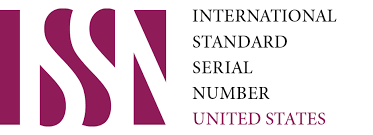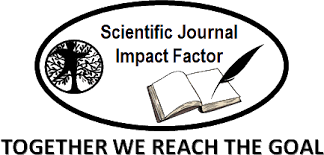Using Conversion as a Way of Forming Words in English and Karakalpak Languages
Keywords:
Word formation, conversion, investigate, processAbstract
The article introduces the study of conversion process in English and Karakalpak languages. The investigation considers some widely-spread transition of Word-formation in modern English and Karakalpak languages by means of conversional patterns. The ways of their secondary nomination are also being discussed, as well as acquiring additional meanings while functioning in speech. It is well known that the phenomenon of conversion is so active in modern English that nearly all parts of speech somehow are involved into this process, however in different extent – most oftener they are nouns, verbs, adjectives and adverbs.
References
Абаев В.И. О подаче омонимов в словаре // ВЯ. - 1957. -№3. -^С.31-44.
Адмони В.Г. Введение в синтаксис современного немецкого языка. М., 1955.
Аймурзаева А.А. Субстантивация имен прилагательных и причастий в современном каракалпакском языке: Автореф. дис. . канд. филол. наук.-Ташкент, 1985.-20 с.
Аппаева Ф.К. Генетически родственные омонимы в карачаево-балкарском языке: Автореф. дис.канд. филол. наук. Нальчик, 2002.
Badirova D.A “Inglis ha’m qaraqalpaq tillerinde basqa so’z shaqaplarinin feyilge o’tiw qubilisi”. QMU Xabarshisi 2019-j. 3-san 157
Badirova D.A “Conversion process in English and Karakalpak languages”.Filologiya ha’m shet tillerdi oqitiwdin’ ahmiyetli ma’selleri konferenciya toplami 2020.
Баскаков Н.А. Каракалпакский язык. М.: Изд-во АН СССР, 1952. -544с.
Баскаков Н.А. Морфология (общие вводные замечания) // Грамматика карачаево-балкарского языка: фонетика, морфология, синтаксис. Нальчик, 1976. -С.106-116.
Downloads
Published
Issue
Section
License

This work is licensed under a Creative Commons Attribution 4.0 International License.
User Rights
Under the Creative Commons Attribution-NonCommercial 4.0 International (CC-BY-NC), the author (s) and users are free to share (copy, distribute and transmit the contribution).
Rights of Authors
Authors retain the following rights:
1. Copyright and other proprietary rights relating to the article, such as patent rights,
2. the right to use the substance of the article in future works, including lectures and books,
3. the right to reproduce the article for own purposes, provided the copies are not offered for sale,
4. the right to self-archive the article.












